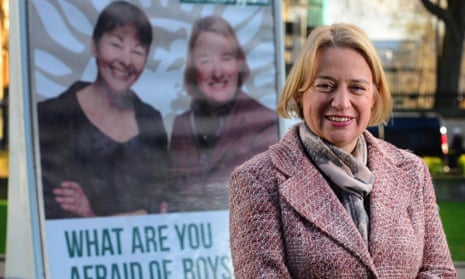The BBC and ITV are expected to expand their TV leader debates plan to include the Green party, the Scottish National party and Plaid Cymru, in a bid to save the proposed broadcasts after their initial proposal was rejected by David Cameron.
Each broadcaster would stage a debate featuring seven participants – the leaders of these three parties, Ukip’s Nigel Farage, Conservative leader Cameron, Labour leader Ed Miliband and his Liberal Democrat counterpart Nick Clegg.
The revised proposals, the result of weeks of negotiations between TV executives, follow Downing Street’s rejection of the original plan to include Farage alongside the three main party leaders in the ITV debate, but not the Greens.
The proposals were immediately criticised by Peter Robinson, leader of Northern Ireland’s Democratic Unionist Party, who said he would be writing to the BBC and ITV to ask why his party was not included in their new offer.
Robinson said on Twitter that his party had more seats than either Plaid Cymru, the SNP and the Greens (as well as Ukip).
The third planned debate, a head to head between Cameron and Miliband which would be broadcast by Channel 4 and Sky News and presented by Jeremy Paxman and Kay Burley, is believed to be unchanged.
The new offer has not been officially confirmed by the broadcasters but a source close to the negotiations said: “Obviously everyone has responded to what has been said. This is the new proposal.”
It is thought the revised TV debates plan will be presented to the political parties before the end of the week.
The new offer tears up two thirds of the original plan, presented to the political parties in October, which proposed a three-way debate on BBC1, featuring Cameron, Miliband and Clegg, and a four party live event on ITV featuring the same three leaders joined by Farage.
Cameron said he would not take part in the debates because it was unfair to include Farage but not the leader of the Green party, Natalie Bennett.
Miliband and the prime minister accused each other of “running scared” of the debates, with Clegg calling on the broadcasters to come up with a new set of proposals.
Cameron’s aides were said to be determined to ensure he does not take part after the 2010 debates were regarded as a disaster for the Conservatives, fearing a new repeat would boost the fortunes of Farage.
The proposal to open up the debates on the BBC and ITV reflects Cameron’s insistence that it was unfair to exclude the Greens.
It also anticipates the likely political response and potential legal action that would follow if the Greens and Ukip were included but not the SNP, led by Nicola Sturgeon, or Plaid Cymru leader Leanne Wood.
The SNP launched a legal challenge against the BBC in 2010 for refusing to allow its then leader Alex Salmond to take part in its debate, one of three that took place before the last election. Plaid Cymru also threatened legal action after their exclusion five years ago.
None of the broadcasters involved were prepared to comment on Thursday afternoon beyond a previously issued statement that said they remained “committed to providing election debates in the run up to the general election.
“The debates played an important role in informing millions of our viewers in 2010 and we will continue to work with all the parties to ensure that they happen again in 2015.”
Adam Boulton, the Sky News presenter who chaired the broadcaster’s 2010 leader debate, said the prime minister had made “two gains” in the proposals but Nick Clegg had lost out.
“If this is true … he has got the Greens included, and you shouldn’t overlook that, and the notion of parity between the two big parties and the Lib Dems has been abandoned, because there was going to be a three-way debate [between Cameron, Miliband and Clegg]. That is a further blow for the Lib Dems.”
Boulton, who was speaking in a personal capacity and is not involved in the current round of negotiations, added: “What he specifically didn’t ask for was the inclusion of the nationalist parties, the SNP and Plaid Cymru.
“If they are going to launch further objections, it would probably be if you are including Plaid Cymru why can’t we have the Democratic Unionists and Sinn Fein and you end up with a debate which clearly would be completely ungainly.”
Boulton said it would have been difficult for the BBC and ITV to include the Greens but not the other parties because “it is perfectly likely the SNP will have more MPs than the Greens or Ukip [after the next election], and certainly possible that Plaid Cymru could have more than the Greens”.
Leader debates hosted by the UK’s main broadcasters are not the only offer on the table. Guardian News & Media and Telegraph Media Group have proposed an internet debate with a woman moderator to be streamed live online in a partnership with YouTube.
The newspaper groups and Google-owned YouTube have been in discussion with the main parties about the proposal, #onlinedebate, since formally pitching their plan in May.
The Qatari-owned news network al-Jazeera may also offer an alternative to the TV leader debates put forward by the main UK broadcasters that would embrace at least five political parties, including the Greens.

Comments (…)
Sign in or create your Guardian account to join the discussion